What Is The Difference Between Sunscreen And Sunblock?
Discover the distinct roles of sunblock and sunscreen in protecting your skin from harmful UV rays

Image: Shutterstock
With so many options for sun protection, picking the right product can get overwhelming. That is why knowing the fundamental differences between sunscreen and sunblock will help you pick the right product suitable for your skin.
Sunscreen and sunblock have different ingredients. They also have unique applications and effects. Here, we further discuss these two products and how they differ. We also help you decide which of the two is ideal for you. Keep reading.
In This Article
What Does Sunscreen Do?
Sunscreen works as a defense layer that absorbs harmful UV rays before they enter your skin
(1). It filters the UV rays. It keeps most rays out though it may let s
ome in. It is also called a chemical sunscreen. Many sunscreens contain ingredients like avobenzone, oxybenzone, para-aminobenzoic acid, and others that absorb the sun’s rays (2).
Among the many causes of skin aging, UVA rays happen to be the most damaging (3). Without adequate protection, excessive exposure to UV radiation causes several skin ailments that could otherwise be avoided (1).
Key Takeaways
- While sunscreen and sunblock are used interchangeably, they are not the same when it comes to sun protection.
- Both vary in their usage, application, chemical composition, and how they protect your skin from harmful UV rays.
- While most regular skin types can use either, sunblock is especially beneficial for sensitive skin or people with pre-existing skin conditions.
What Does Sunblock Do?
Sunblock also protects the skin from UV radiation. Sunblock products utilize microfine zinc oxide (4). The product is usually thicker and less translucent than a sunscreen. While you might feel this could make applying sunblock more challenging, in reality, it only creates a thick layer to repel the sun’s harmful rays out. Unlike a sunscreen, a sunblock totally repels UV rays. It is also called a physical sunscreen.

Today, companies are working on less opaque sunblocks.
What is common between a sunblock and a sunscreen is SPF. We will understand about it more in the next section.
What Is SPF?
SPF, or Sun Protection Factor, denotes a product’s ability to protect from the sun’s UVB rays.
It also tells you how much time your skin can take to turn red when exposed to the sun as compared to if you had never applied the product. For instance, a product with SPF 30 will make the sun take 30 times longer to penetrate your skin than if you hadn’t applied the product (5).
Note: SPF goes from 0% – 100%. The percentage demonstrates how much percent of UVB rays can be blocked with the product. Depending on the type of product and how it is formulated, the SPF varies. You can get either sunscreen or sunblock to protect your skin from UV rays. While both may seem to have similar functions, they work differently. Let’s understand how is a sunscreen different from a sunblock.
Differences Between Sunscreen And Sunblock
The main difference between the two is the way they protect your skin from the harmful UV rays.
Sunscreens mainly aim to absorb the harmful rays so that they do not reach the deeper layers of your dermis. The product usually gets absorbed into the skin.
On the other hand, sunblock creates a barrier between your skin and the sun’s harmful radiation. It is applied to the skin and can often be quite prominently visible.
So, which of the two is better? Which one should you use?
Should I Use Sunscreen Or Sunblock?
Sun protection mainly comes in the form of a gel, lotion, or cream. Many brands have released products that are in powder form as well.
Sunscreen and sunblock offer excellent protection from the sun’s harmful radiation. But when it comes to choosing between the two, your skin type can play a significant role. If you have sensitive skin, you would likely be best off using a sunblock with zinc oxide. These ingredients are also preferred for children because of their mildness.
Those who have preexisting skin conditions or get allergies easily should avoid using products that have artificial fragrances, preservatives, oxybenzone, or PABA (all of which are present in sunscreens).
But if you have a regular skin type and do not have any preexisting skin condition, you may choose sunscreen. It is a matter of choice and convenience in the end. You can even consult your dermatologist to see what works best for you.
 Trivia
TriviaNo matter what you choose, the end goal is to stay protected from the UV rays. Let us now see why sun protection is essential.
Three Reasons To Use Sun Protection
1. Reduces Risk Of Skin Cancer
Excessive sun exposure is one of the major reasons for skin cancer (6). Wearing a proper protective layer like sunscreen or sunblock can reduce this risk.
2. May Prevent Premature Skin Aging
UV rays can also cause degenerative aging (6). They also contribute to collagen breakdown and cause other skin issues. Sun protection ensures that your skin ages at its own pace rather than through UV damage.
3. May Balance Out Your Skin Tone
Areas that are exposed to the sun are darkened and do not appear aesthetically pleasing. Using sun protection may even out the skin tone and reduce the chances of these dark patches.
Note: Sun damage can cause hyperpigmentation, also commonly known as “sunspots” or “age spots”. Many people develop freckles when exposed to UV rays, which is one mild example of hyperpigmentation. With sun protection, you can reduce the chances of developing larger patches of darkened skin.
Now that you know the importance of sun protection, let us understand its application.
Application Of Sun Protection
The best part about sunblock is that you do not need to wait for the product to be absorbed into your skin. You can just apply it to the surface and let it work its magic. You can step into the sun right away as it works as a physical barrier.
But sunscreen does not work as a physical barrier. Hence, you need to wait for nearly 30 minutes after application before stepping into the sun.
A Canadian beauty and lifestyle blogger put down a detailed note about sunscreen and how she used it effectively for sun protection. She said, “For my own personal experience, I got burnt from the sun once in my teens, and since then, I’ve always been careful about applying sunscreen while doing outdoor activities (i).” She also added a note about how frequently she reapplied sunscreen to protect her skin, and she added, “When I’m doing outdoor activities like hiking, or we’re just spending the day out and about enjoying the sun, I always make sure to reapply every 2-3 hours.”
 Quick tip
Quick tipThere is an abundance of research and anecdotal reports such as the one above, that illustrate why sunscreen is important. So, always make it a point to apply sunscreen or sunblock generously during the day. Make sure you evenly coat the surface of your skin.
Other Important Label Information
Following are a few other terms to keep an eye for on the product labels (7):
- Water-Resistant
Water-resistant means that the product can withstand a significant amount of contact with water before it needs to be reapplied. The more water-resistant your product is, the better it is for keeping you safe from the sun while exposed to water.
- Broad-Spectrum
Broad-spectrum means the product can protect against both UVA and UVB rays.
- Sports
The FDA has not approved this term for sun protection, but it is a common indication of water- and sweat-resistance. If the product pack has “sports” written on it, chances are it was created to be more resistant to water and sweat. This type of sun protection is perfect for performing athletes.
- Sensitive Skin
Skin care products need to be created to suit different skin types. Sun protection meant for sensitive skin (as is mentioned on the product packaging) does not include PABA, added fragrances, or oils that may otherwise cause adverse reactions.
Let us now look at some additional tips to stay protected from the sun.
Additional Tips To Stay Protected From The Harmful Effects Of The Sun
Staying safe from the sun does not need to be complicated. Along with the application of sun protection, you can keep these tips in mind:
- Wear sunglasses when stepping out.
- Carry a scarf and hat with you at all times.
- Understand what level of SPF you require in your sunblock or sunscreen. This will give you a better idea about the product that is right for you.
- Sun protection is necessary even during winter or when it is cloudy.
The main difference between sunscreen and sunblock is the way they protect your skin. Sunscreen absorbs the harmful rays and does not let them enter your skin, while sunblock forms a protective layer and blocks the harmful radiation. If you want to choose one from these, you must first know your skin type and issues. If you have sensitive skin or any pre-existing skin care issues, it is best to use sunblocks, while you may use sunscreen if your skin is healthy. However, always make sure you choose a product with an SPF of more than 30.
Frequently Asked Questions
Does sunblock make you darker?
No. Sunblock or sunscreen does not make you darker. However, if any of the ingredients in the formulas do not suit your skin, it can cause adverse reactions, which include skin darkening.
Can sunscreen remove dark spots?
No. Sunscreens and sunblocks do not remove dark spots or tanning. They are only meant for sun protection, so they may prevent existing spots and tan from worsening but will not get rid of them.
Why does sunscreen only last 2 hours?
The effects of sunscreen do not wear off with time but with exposure. If you only step out while commuting but stay indoors for the rest of the day, your sunscreen will last almost the entire day. However, if you are going to stay outdoors under the sun or in a pool, then sweat, water, and UV rays will break down the protective sunscreen layer. In that case, you need to reapply it every 1.5-2 hours.
Examine the pros and cons of sunscreen against sunblock. Watch this insightful video, discover the differences, and determine which one offers the best protection against UV damage for the health of your skin.
Personal Experience: Source
StyleCraze's articles are interwoven with authentic personal narratives that provide depth and resonance to our content. Below are the sources of the personal accounts referenced in this article.
(i) Skincare Stories | Why Sunscreen is So Important
https://polishedandinspired.wordpress.com/2019/07/12/skincare-stories-why-sunscreen-is-so-important/
References
Articles on StyleCraze are backed by verified information from peer-reviewed and academic research papers, reputed organizations, research institutions, and medical associations to ensure accuracy and relevance. Read our editorial policy to learn more.
- Sunscreen isn\’t enough
https://linkinghub.elsevier.com/retrieve/pii/S1011134401001956 - The Burning Facts
https://www.epa.gov/sites/default/files/documents/sunscreen.pdf - Roles of UVA Radiation and DNA Damage Responses in Melanoma Pathogenesis
https://www.ncbi.nlm.nih.gov/pmc/articles/PMC6031472/ - Microfine zinc oxide (Z-cote) as a photostable UVA/UVB sunblock agent
https://pubmed.ncbi.nlm.nih.gov/9922017/ - Photoprotection in Outdoor Sports: A Review of the Literature and Recommendations to Reduce Risk Among Athletes
https://www.ncbi.nlm.nih.gov/pmc/articles/PMC8850489/ - UV Radiation and the Skin
https://www.ncbi.nlm.nih.gov/pmc/articles/PMC3709783/ - Labeling and Effectiveness Testing: Sunscreen Drug Products for Over-The-Counter Human Use — Small Entity Compliance Guide
https://www.fda.gov/regulatory-information/search-fda-guidance-documents/labeling-and-effectiveness-testing-sunscreen-drug-products-over-counter-human-use-small-entity - Physical Vs. Chemical Sunscreen: Which Is Better?
- Mineral Vs. Chemical Sunscreen: The Ultimate Guide
- 6 Side Effects Of Using Sunscreen You Should Be Aware Of
- 6 Best SPF 100 Sunscreens Of 2025 For Maximum Sun Protection
Read full bio of Dr. Schwarzburg
Read full bio of Arshiya Syeda
Read full bio of Ramona Sinha
Read full bio of Swathi E






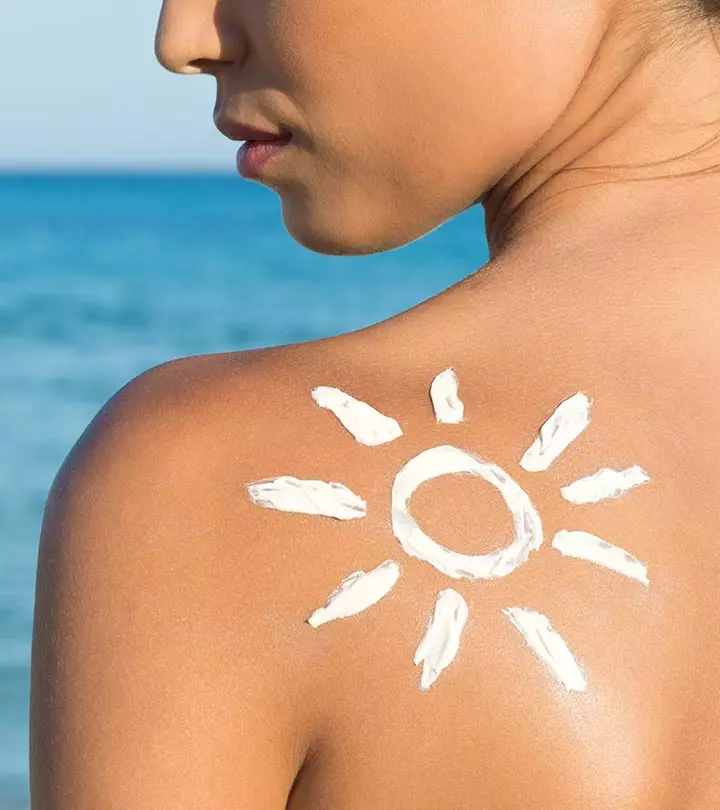
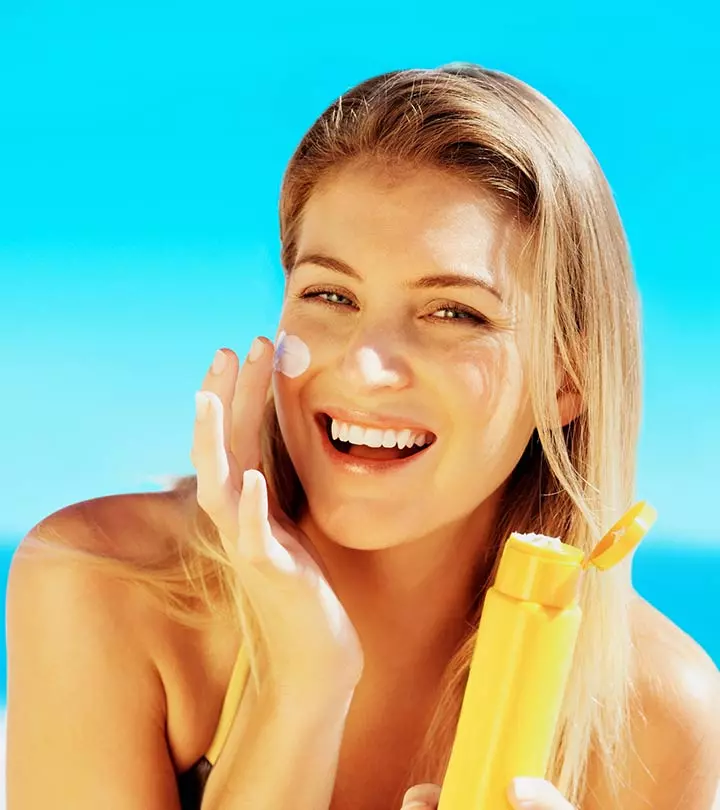
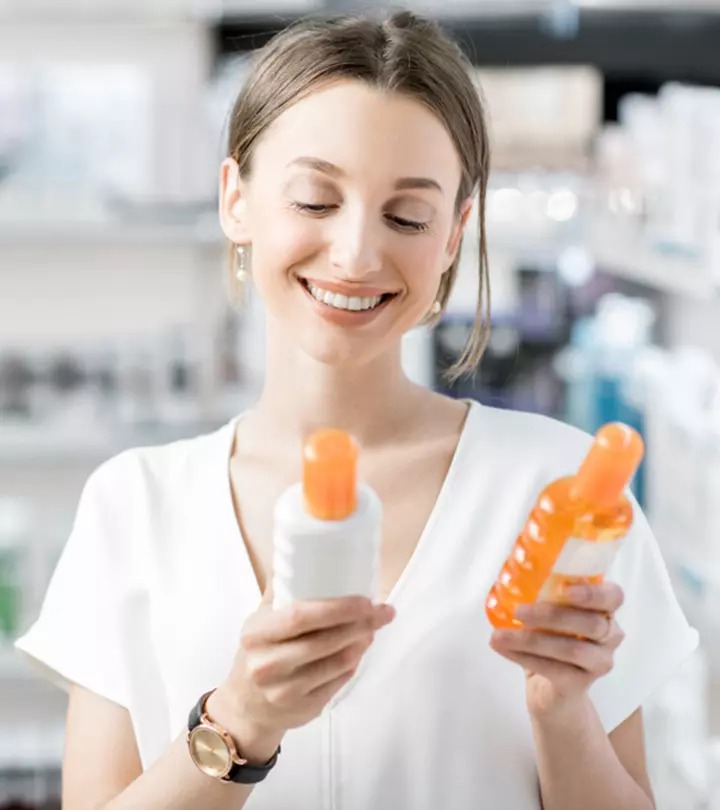
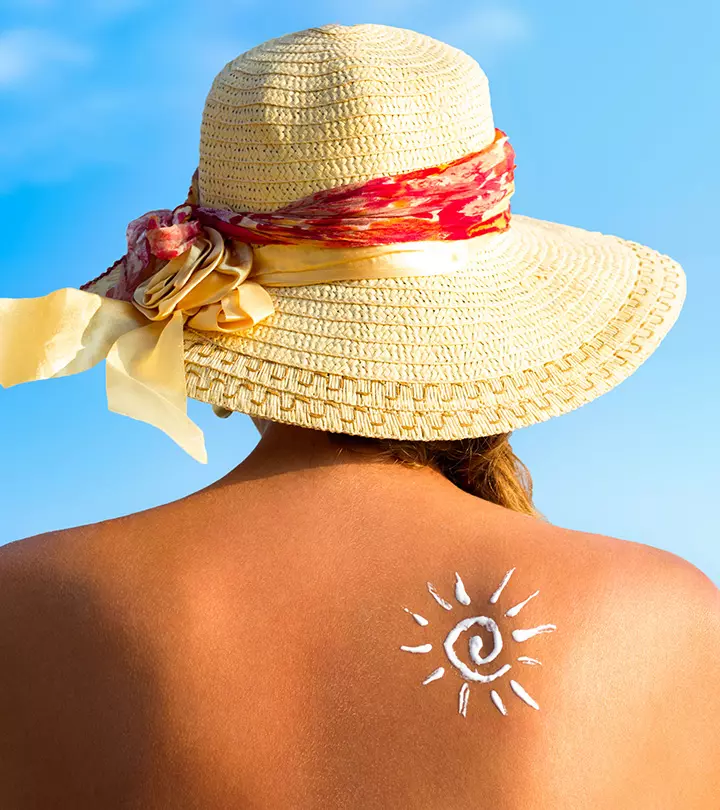
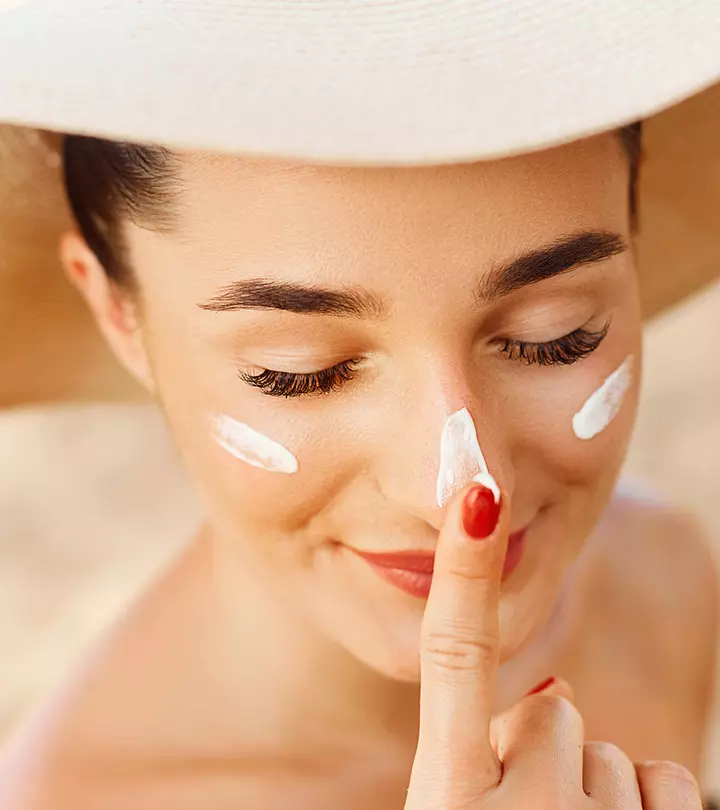
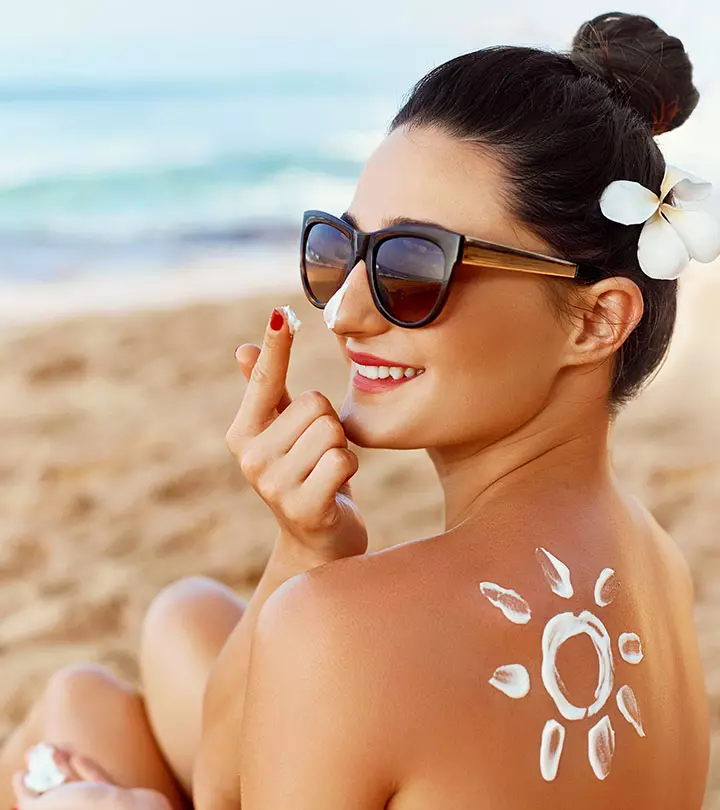
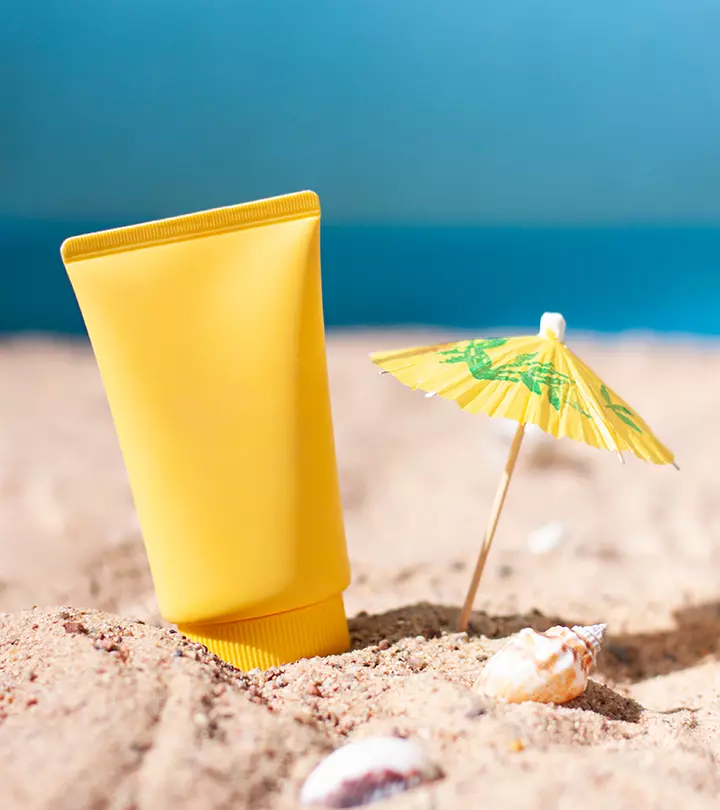

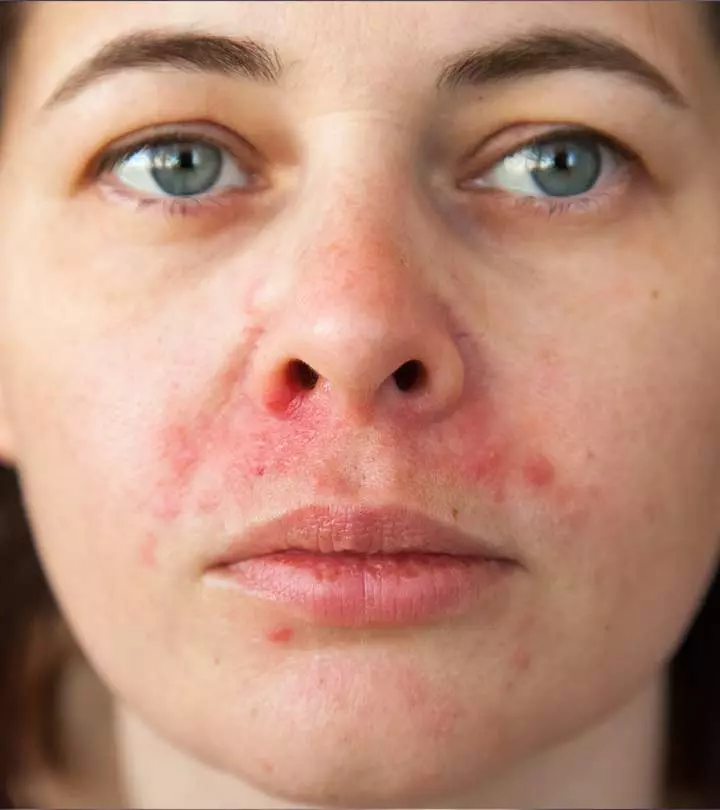
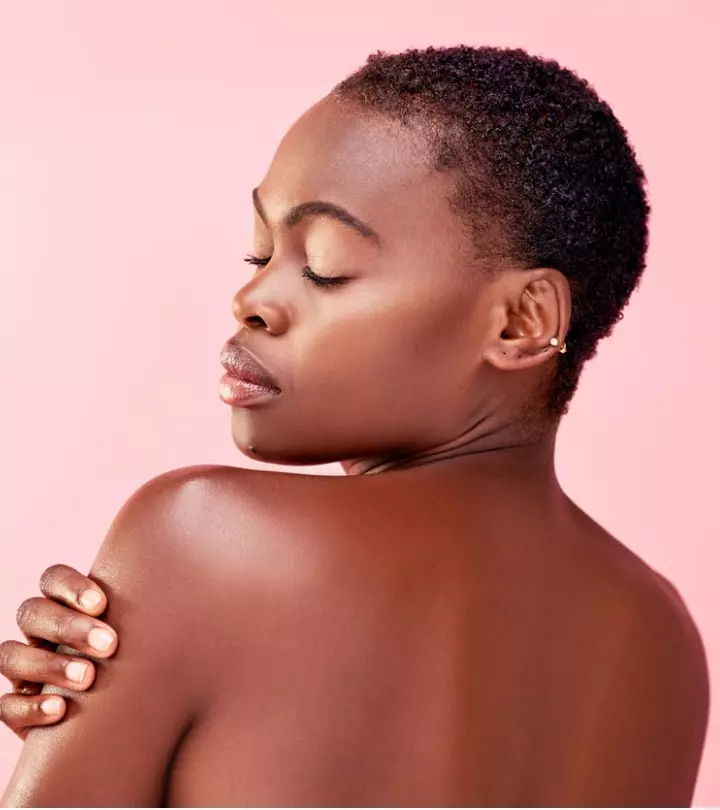
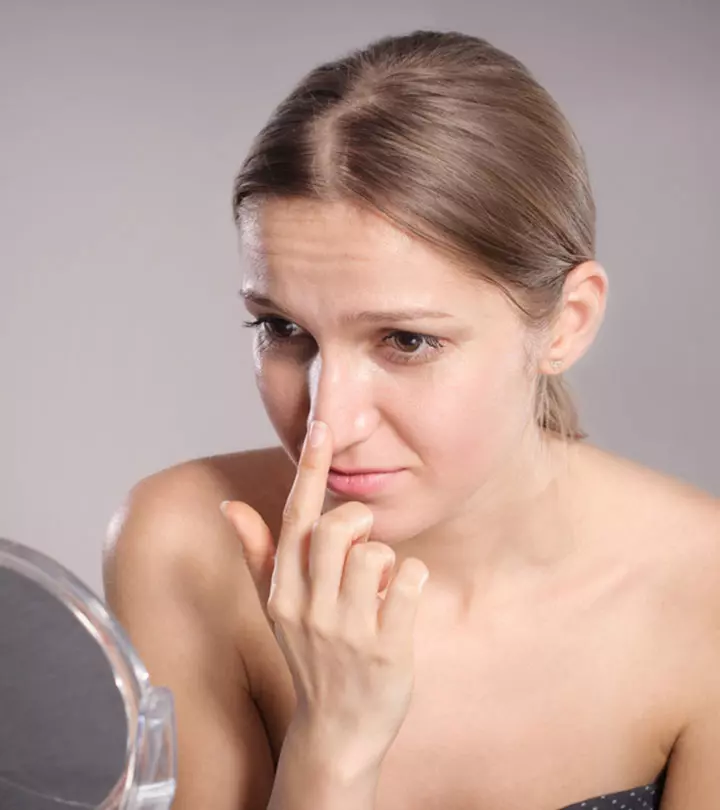
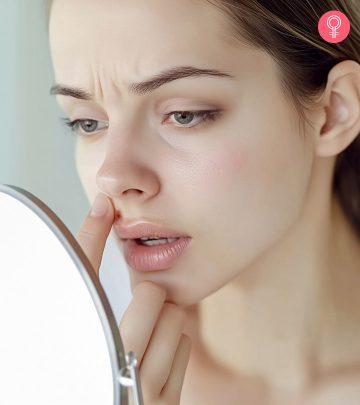

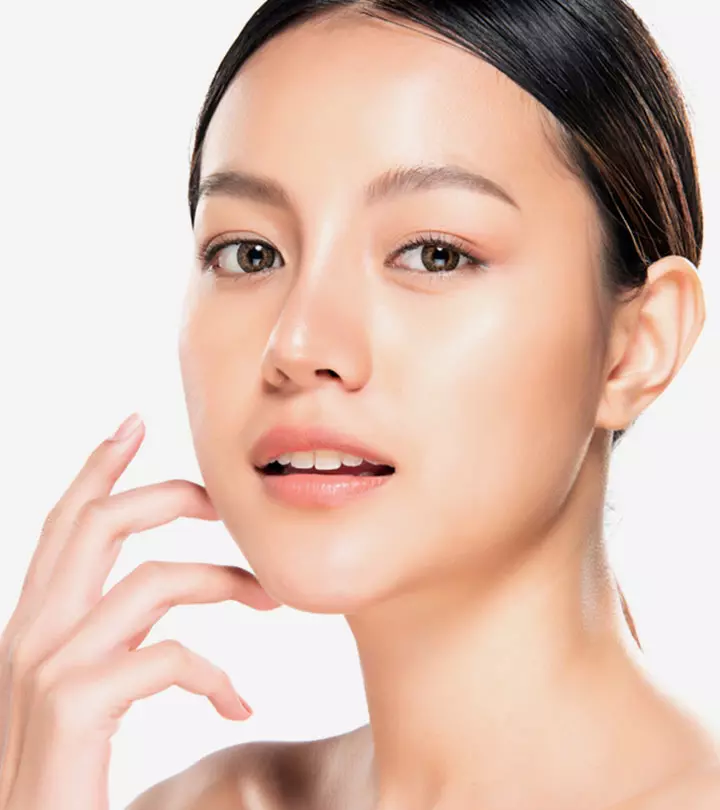
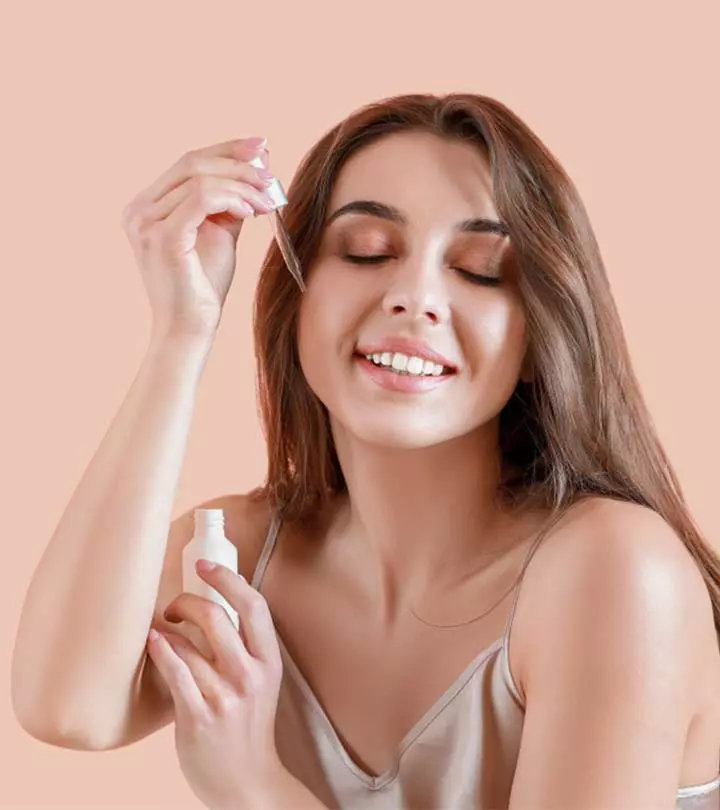
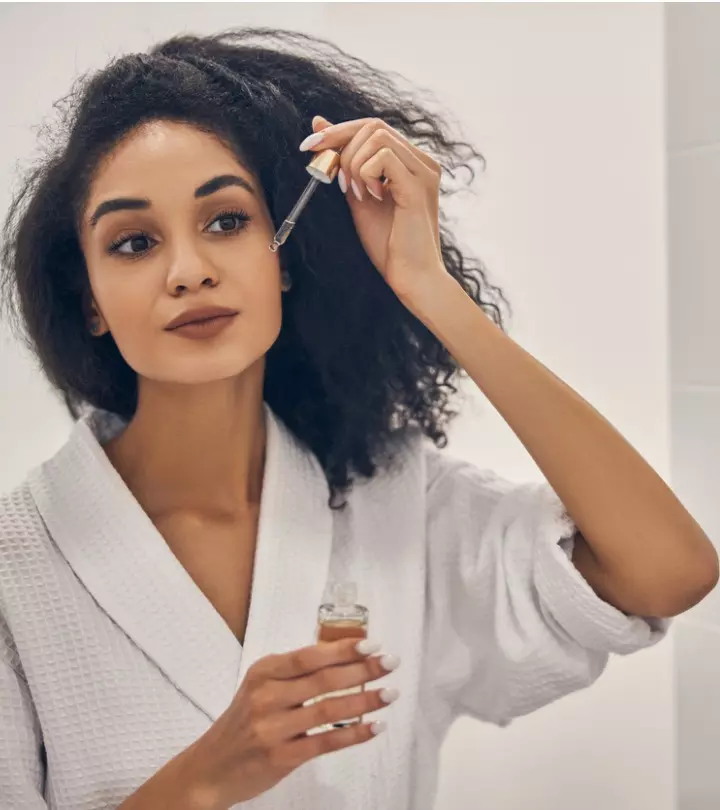
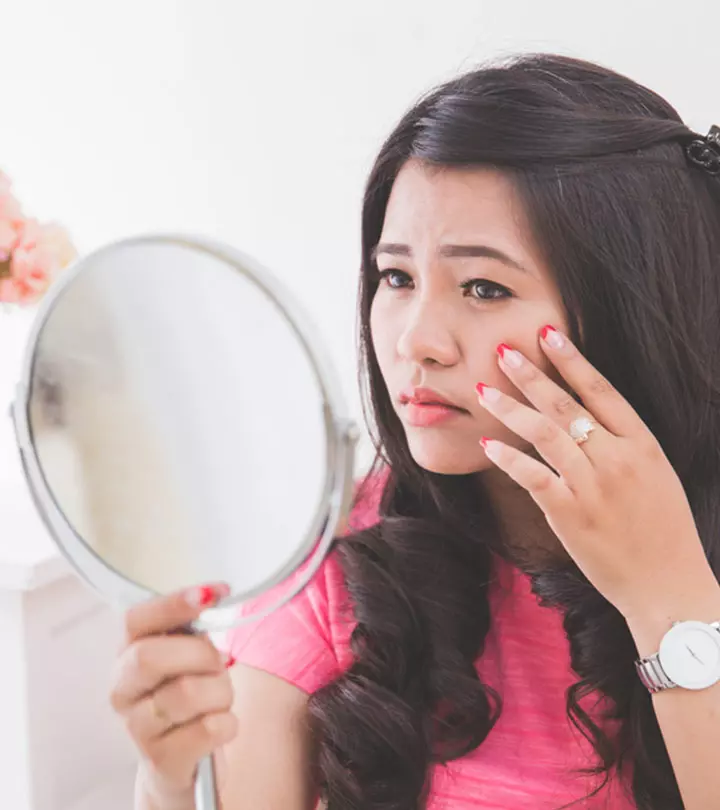
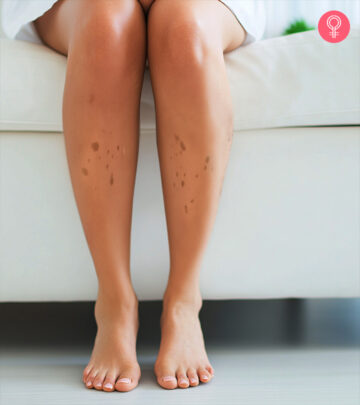

Community Experiences
Join the conversation and become a part of our empowering community! Share your stories, experiences, and insights to connect with other beauty, lifestyle, and health enthusiasts.